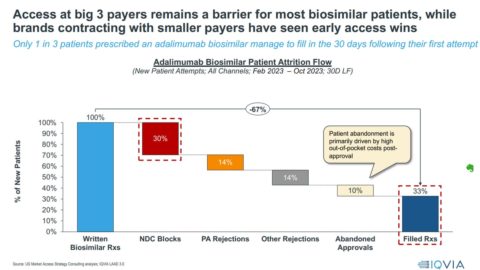So to strip things down to the basics, most cost-effectiveness analyses of drugs look at only three components: 1) What does it cost? 2) How does it extend or improve life? 3) Does it save money elsewhere in the health care system?
There are a couple of problems with that approach. The first is that “price” is not fixed. Prices go up or down, usually in response to competition, before absolutely falling off a cliff when generics enter the market. The second is medicines bring value in many more ways than traditional methods account for.
Anyway, there is an important-not-sexy new paper that looks at the cost-effectiveness of hepatitis C medicines. It starts by running a standard cost-effectiveness analysis, which finds that the drugs are cost-effective by the usual standards: they cost $64,512 per quality-adjusted life-year. (Generally, anything lower than $150K/QALY is seen as a good deal.)
But then it looks at adding a number of wrinkles that aren’t included in the usual calculus. If you consider the transmission dynamics of hepatitis C, the cost drops to $52,971/QALY. Adding in pricing dynamics — the fact that prices will change over time — gets to a $6,406/QALY figure. Weighing elements such as productivity loss and caregiver spillover gets the number below $6,000.
And if you assume that the medicines will eventually get the Mark Cuban super-low-price-generic treatment, the model will end up at less than $5,000/QALY.
Look, that’s a lot of numbers (SRY). The takeaway here is that relatively small, clear tweaks in health economic analysis can improve the cost-effectiveness of medicines by an order of magnitude. Hep C is a great way of illustrating this, and this is an approach that will provide an eye-opening perspective across the board.**
Or, even briefer: medicines might be a better deal than we realize.
** No Patients Left Behind, which sponsored the hep C work, put out a broader look, earlier in the year, at how this kind of approach would look across a range of drugs.
The government filed its first substantive brief in the U.S. Chamber of Commerce’s IRA lawsuit, asking the court to throw out the case. (I say “substantive,” which isn’t fair, to distinguish this round of legal wrangling from the first round, where the Chamber sought — unsuccessfully — an immediate halting of the whole program while the lawsuits progressed.) None of the arguments are particularly new anymore, which may be why there hasn’t been any coverage. This is a busy week for the government lawyers, who also have deadlines in the Boehringer and JNJ/BMS cases before the reindeer are aloft.
This is a weird, weird editorial from the Wall Street Journal. In an effort to show that their blood enemy, Joe Biden, is driving up prices, the editorial board throws the pharmaceutical industry under the bus by claiming that drugmakers are jacking up prices in the commercial market. There’s no evidence of that, for what it’s worth. But it’s illuminating to see how far the WSJ eddy board will go to kick the president in the shins.
I’m on the record as thinking importation is a political stunt that isn’t going to work, and even if it did work, it won’t meaningfully drive drug prices down or fix any of the underlying issues. But that doesn’t mean it won’t continue to garner attention. The feds say they’ll get back to Florida on Jan. 5 on its request to import drugs, so expect some heat (but no light) after the New Year.
I’m not sure why Sen. Elizabeth Warren and Rep. Pramila Jayapal went rattling cages about alleged “orange book” patent abuses last week, given that the FTC is already on the case. But that’s worth the reminder that the FTC deadline for companies removing patents was Friday. The FTC has courted media attention on this, so I expect an update this week.
One of the architects of the Bayh-Dole Act has a STAT First Opinion on how the use of march-in rights to lower drug costs is a) not at all what the law was intended to do and b) damaging to innovation. It’s not a novel argument, but it’s an authoritative one.
I linked to a thoughtful webinar — Medicare Drug Price Negotiation, How to Ensure Access & Equity — last week, and I saw that MedPage pulled one of the best quotes of the year from the event. It’s via Northwestern’s Craig Garthwaite, on what “negotiation” means in the context of the IRA: “I guess you negotiate with a mugger when they show up. It’s your money or your life.”
If this email was forwarded to you, and you’d like to become a reader, click here to see back issues of Cost Curve and subscribe to the newsletter.





